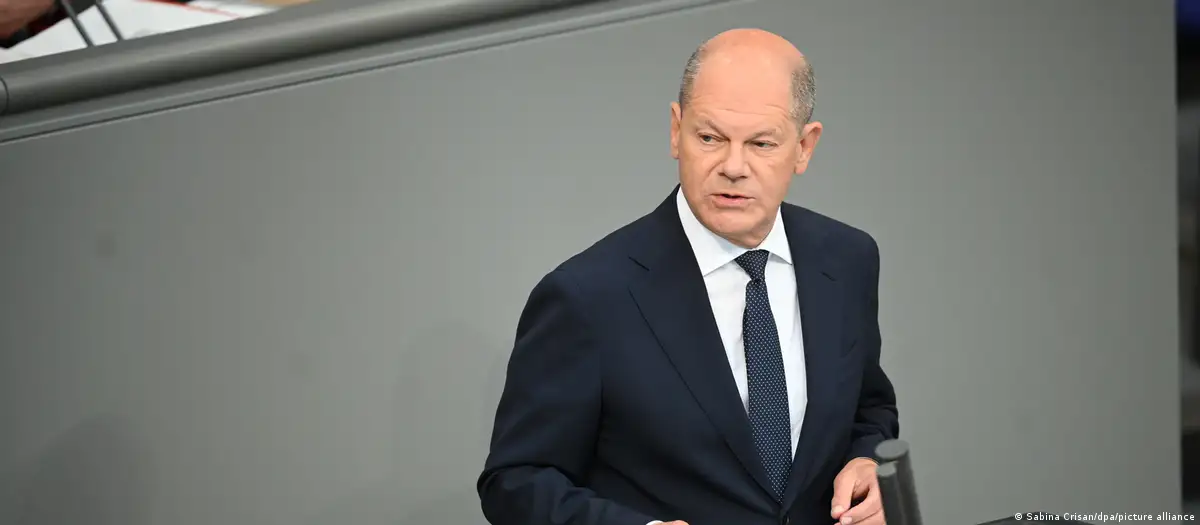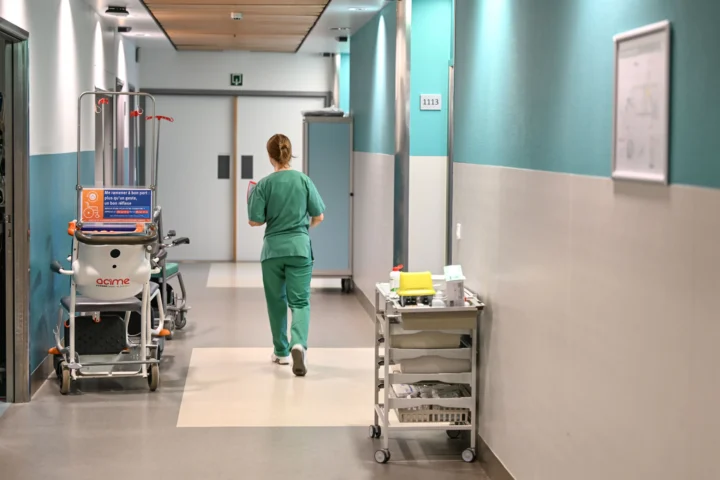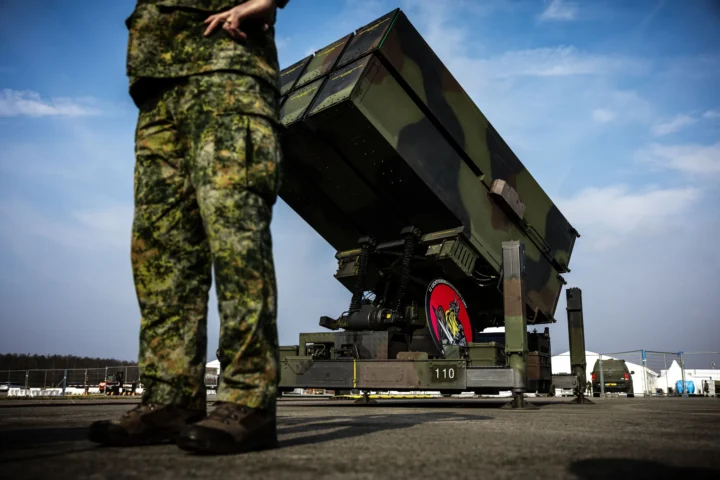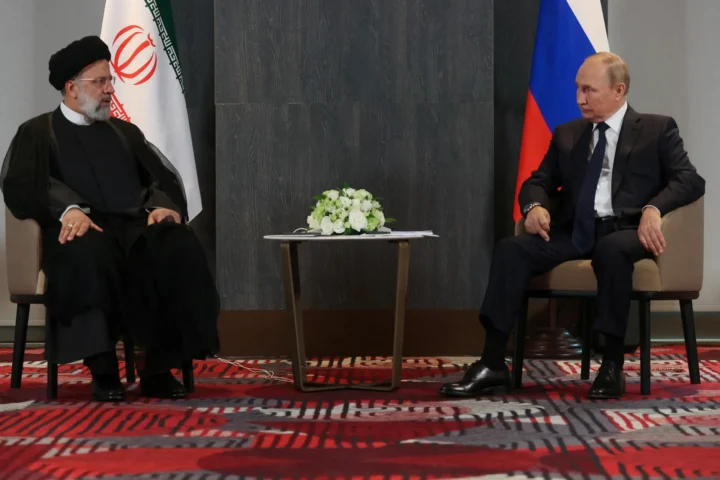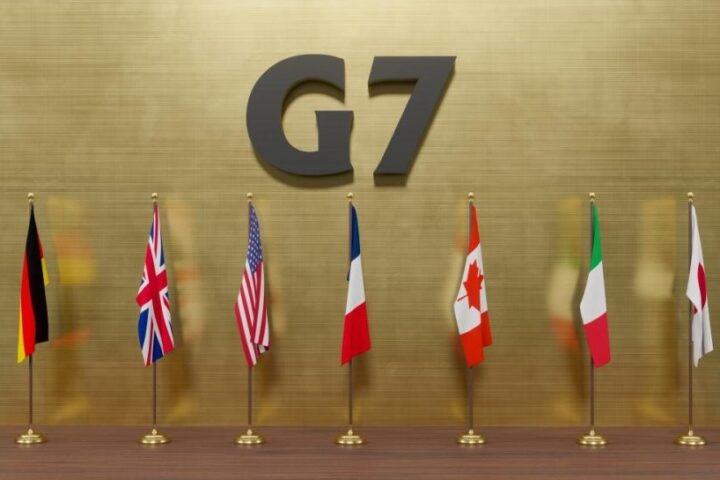Chancellor Olaf Scholz addressed whether or not to deport migrants to countries previously considered unsafe, recent floods and the decision to allow Ukraine to use German arms against targets inside Russia.
German Chancellor Olaf Scholz on Thursday morning addressed the lower house of parliament, the Bundestag, in a statement on national security.
The briefing touched on three main topics: the recent stabbing death of a police officer by an asylum seeker, the massive floods that hit southern Germany over the weekend, and Germany’s stance in the war in Ukraine.
Addressing the situation, Scholz said, “even though they are not related, they all concern us.”
Condemnation of anti-democratic acts and a pledge of solidarity with police
Scholz began by addressing the recent death of a German police officer who was stabbed by a 25-year-old Afghan national last week, saying the tragedy had, “struck us all in the heart.”
He then went on to call out what he described as a misanthropic ideology: “radical islam… terrorism… wants to rob us of our freedom. Without those freedoms we have no democracy.”
Speaking of the family, friends and above all the collagues of the fallen officer, Scholz said: “We stand with you. We stand behind our police.”
He said laws against such violence must be made tougher and that those who kill cops must be punished with all severity.
He then went on to call out anti-democratic tendencies within German society and the growing number of attacks on politicians of late by citizens on the far-left and far-right of the political spectrum.
Scholz was clear that freedom from fear applied to all in Germany, saying, “That goes for those who have always lived here as well as those who recently arrived. Immigrants are part of our society, we will not allow ourselves to be divided.”
Referencing recent news of concern about whether Germany’s national football team has too many non-white players in the run-up to the European soccer championship, he was indignant, saying, “they are all Germans, they are all our boys.”
Deportations: national security outweighs rights of individual asylum seekers
He then addressd the contentious issue of migrant deportations. Saying he was, “disgusted that someone seeking shelter in Germany would commit crimes [as in the stabbing attack in Mannheim]” adding that such individuals must be deported.
The issue of whether or not Germany should resume deportations to countries such as Afghanistan and Syria has been hotly debated, with those on the left arguing against, and those on the right arguing for.
Scholz acknowledged such concerns but nevertheless promised to strengthen laws allowing the swift deportation of criminal migrants to countries previously deemed unsafe, saying, “National security weighs heavier than the rights of individual asylum seekers.”
He also highlighted the need for more police as well as vowing to deny German passports for known Islamists or antisemites, pledging a “zero tolerance” stance when it came to deporting such individuals.
Floods highlighted German solidarity
Speaking of the massive floods that hit southern Germany over the weeked, Scholz offered his heartfelt sympathy to those affected as well as praise and thanks for all those involved in managing the extremely difficult situation.
Scholz said the collective effort of individuals, as well as local, state and federal government had shown that “Germany works.”
Expanding on the sentiment of solidarity, he said, “that’s Germany, we are strong because we stick together.”
Scholz also cited the fact that the weekend’s flooding was the third instance of extreme weather to hammer the nation since the beginning of the year, caling this a cler sign of climate change — a statement that elicited boos from members of the far-right Alternative for Germany (AfD).
Those interruptions were not the first nor the last for AfD parliamentarians, something Scholz would call out in his closing remarks on Ukraine.
Change in policy over Ukraine
The German leader reiterated his support for Ukraine and vowed that “peace does not mean capitulation” and that he refused “to allow the return of war as the continuation of politics by other means.”
Scholz’s remarks come just days after a dramatic change of course regarding Ukraine, in which he followed Washington’s lead by giving Kyiv permission to use German weapons to strike legitimate military targets inside Russia.
Scholz had been loath to allow Kyiv to do so for fear of escalating the war as Russia loudly threatens Ukraine’s allies of grave consequences should they help Kyiv defend itself.
Increased attacks on eastern Ukraine’s Kharkiv region launched from sites inside Russia, however, forced a change in strategy, with Scholz — like US President Joe Biden — acceding to Ukrainian requests for permission to strike at aggressor Moscow’s military assets beyond its borders.
Prior to his address, Scholz said the decision had been carefully deliberated, adding, “We are certain that it will not contribute to an escalation, because — as the US president has also said — it is only a matter of being able to defend a major city like Kharkiv, for example.”
